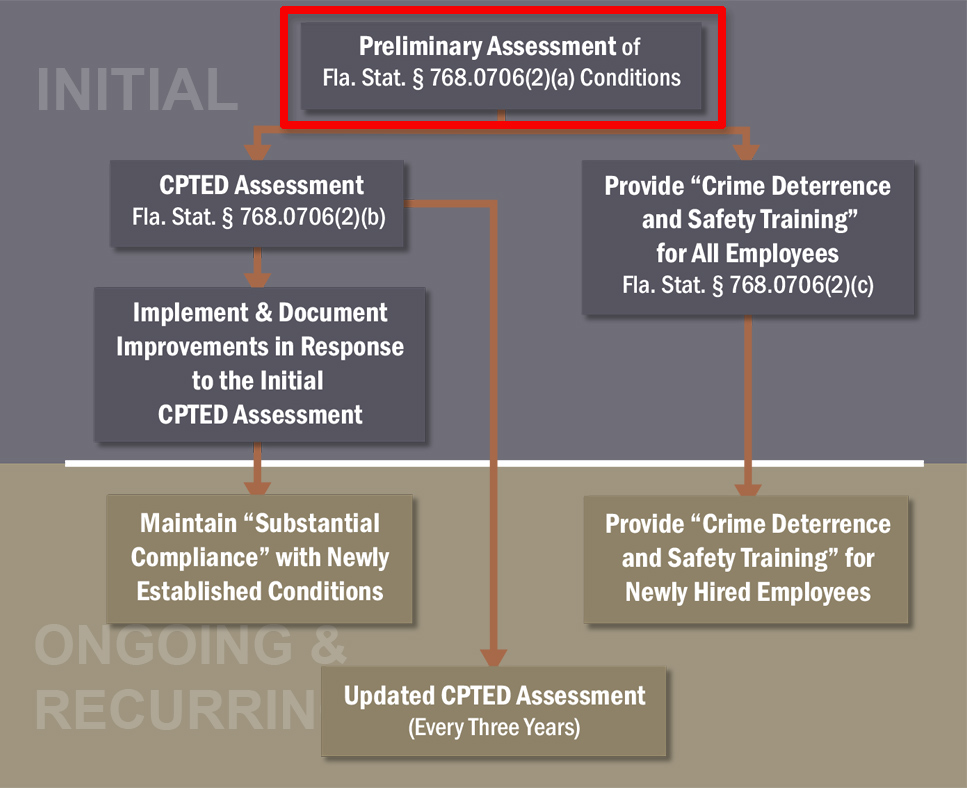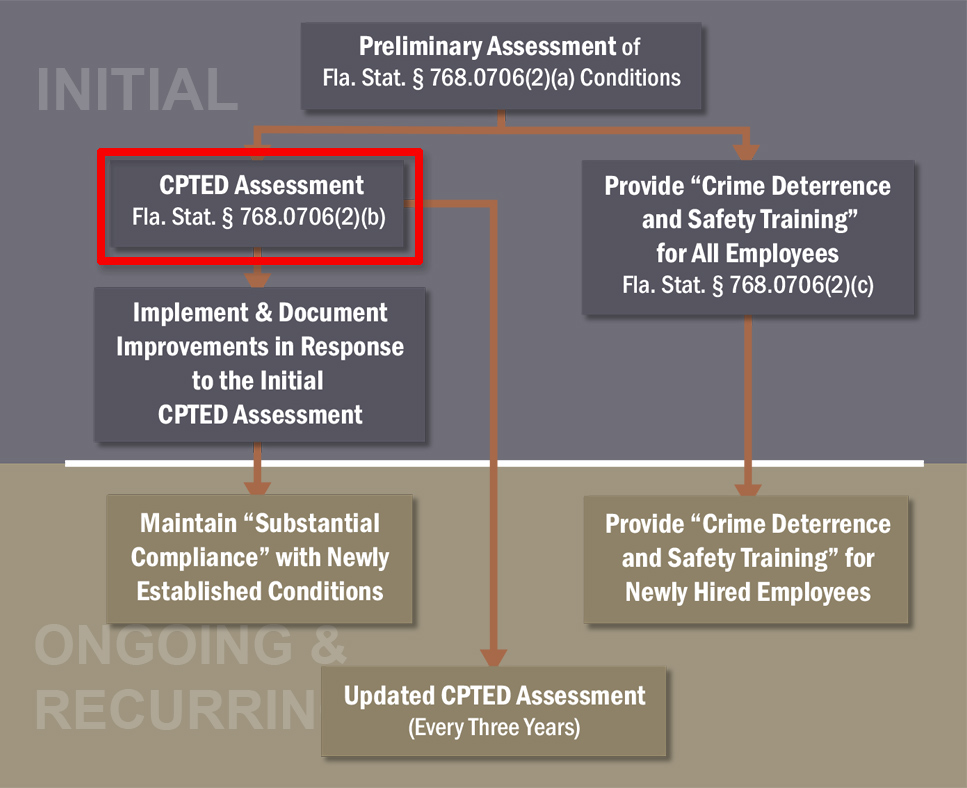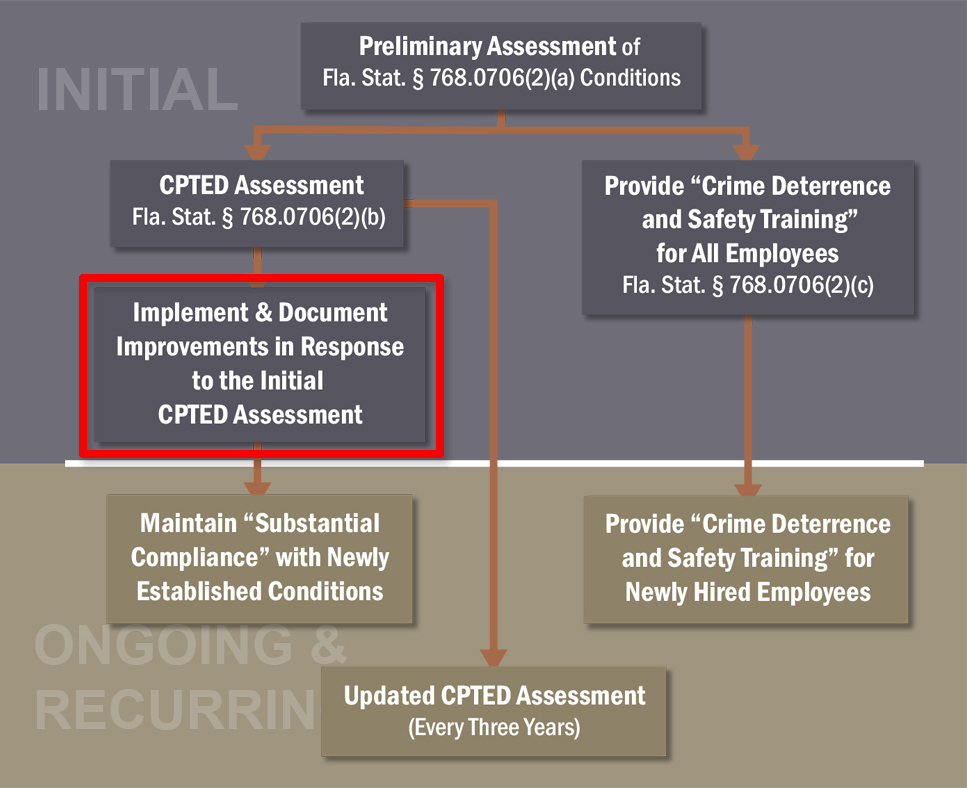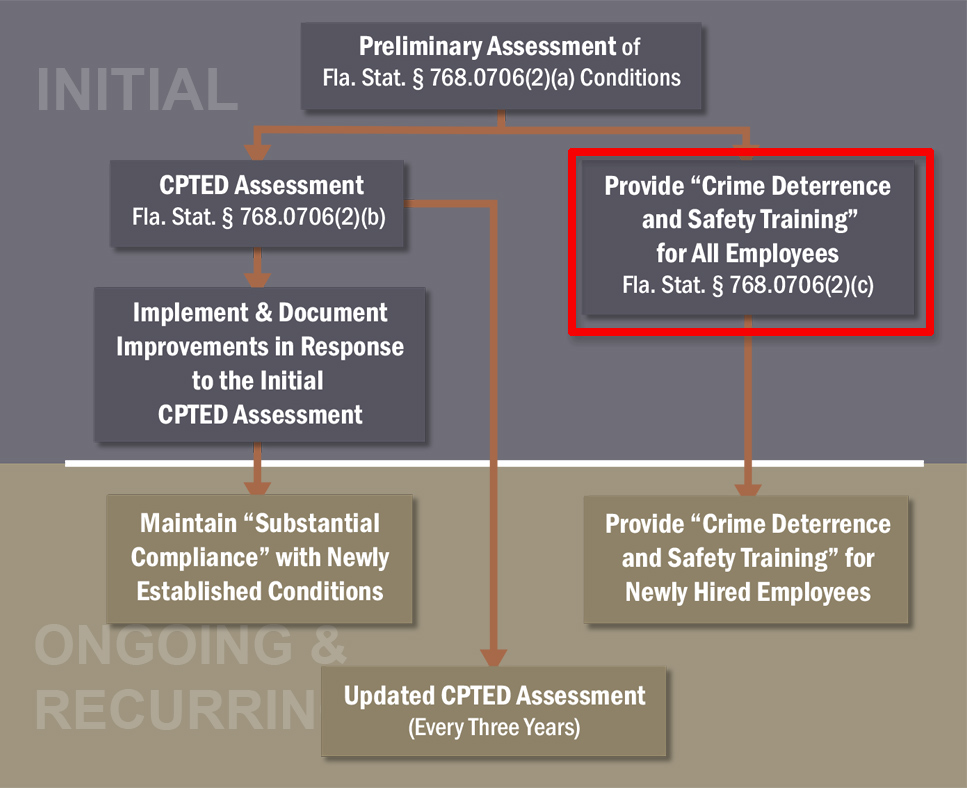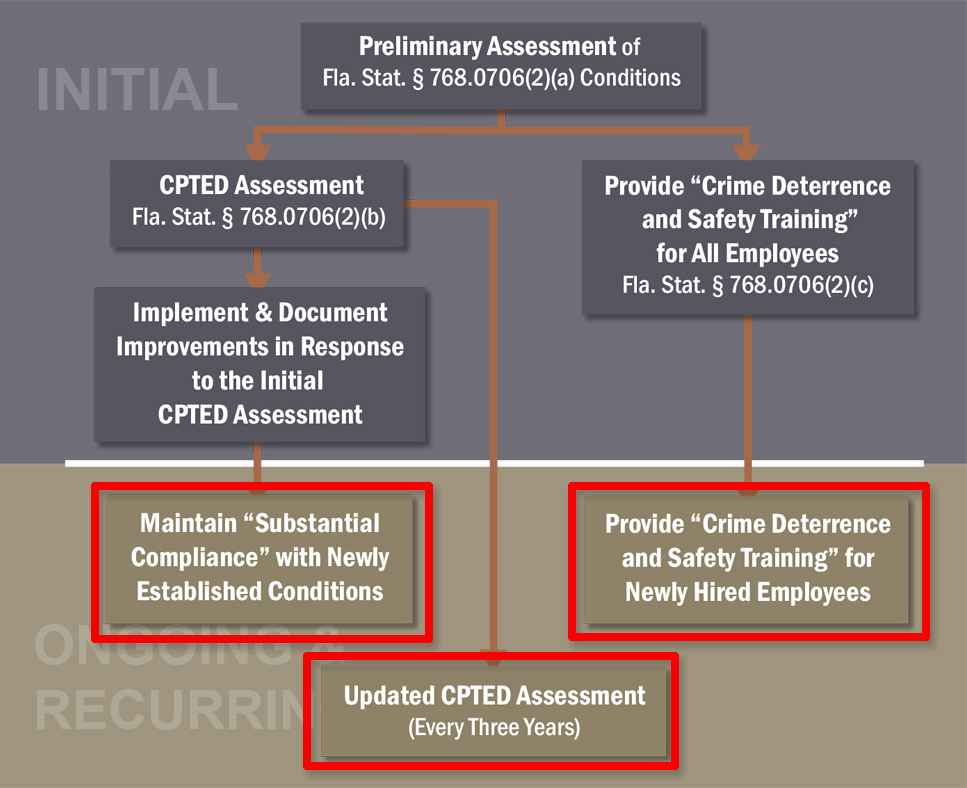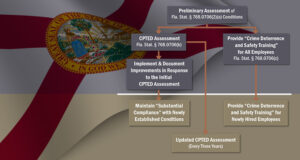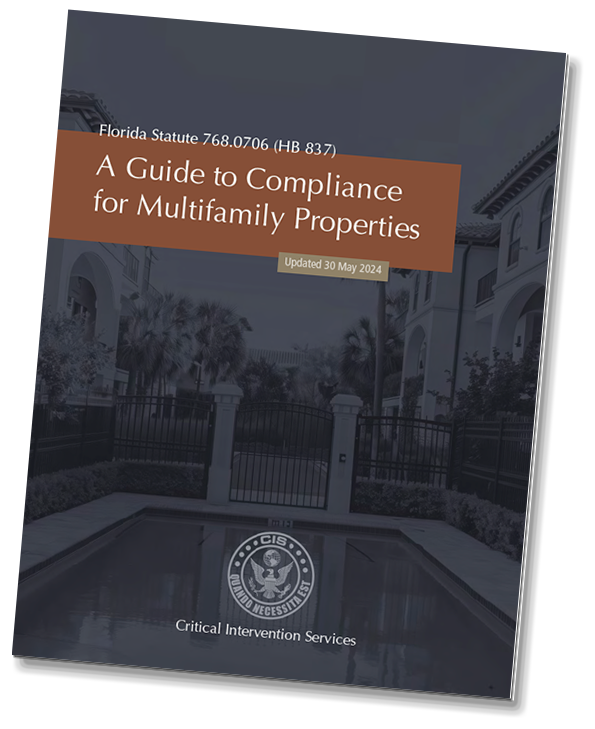768.0706 Multifamily residential property safety and security; presumption against liability.—
(1) As used in this section, the term:
(a) “Crime prevention through environmental design” has the same meaning as in s. 163.503(6).
(b) “Multifamily residential property” means a residential building, or group of residential buildings, such as apartments, townhouses, or condominiums, consisting of at least five dwelling units on a particular parcel.
(c) “Parcel” means real property for which a distinct parcel identification number is assigned to the property by the property appraiser for the county in which the property is located.
(2) The owner or principal operator of a multifamily residential property which substantially implements the following security measures on that property has a presumption against liability in connection with criminal acts that occur on the premises which are committed by third parties who are not employees or agents of the owner or operator:
(a)1. A security camera system at points of entry and exit which records, and maintains as retrievable for at least 30 days, video footage to assist in offender identification and apprehension.
2. A lighted parking lot illuminated at an intensity of at least an average of 1.8 foot-candles per square foot at 18 inches above the surface from dusk until dawn or controlled by photocell or any similar electronic device that provides light from dusk until dawn.
3. Lighting in walkways, laundry rooms, common areas, and porches. Such lighting must be illuminated from dusk until dawn or controlled by photocell or any similar electronic device that provides light from dusk until dawn.
4. At least a 1-inch deadbolt in each dwelling unit door.
5. A locking device on each window, each exterior sliding door, and any other doors not used for community purposes.
6. Locked gates with key or fob access along pool fence areas.
7. A peephole or door viewer on each dwelling unit door that does not include a window or that does not have a window next to the door.
(b) By January 1, 2025, the owner or principal operator of a multifamily residential property has a crime prevention through environmental design assessment that is no more than 3 years old completed for the property. Such assessment must be performed by a law enforcement agency or a Florida Crime Prevention Through Environmental Design Practitioner designated by the Florida Crime Prevention Training Institute of the Department of Legal Affairs. The owner or principal operator must remain in substantial compliance with the assessment for purposes of this paragraph.
(c)1. By January 1, 2025, the owner or principal operator of a multifamily residential property provides proper crime deterrence and safety training to its current employees. After January 1, 2025, the owner or principal operator must provide such training to an employee within 60 days after his or her hire date for purposes of this paragraph.
2. For purposes of this paragraph, “proper crime deterrence and safety training” means training which trains and familiarizes employees with the security principles, devices, measures, and standards set forth under paragraph (a), and which is reviewed at least every 3 years and updated as necessary. The owner or principal operator may request a law enforcement agency or the Florida Crime Prevention Through Environmental Design Practitioner performing the assessment under paragraph (b) to review the training curriculum.
(3) For purposes of establishing the presumption against liability under subsection (2), the burden of proof is on the owner or principal operator to demonstrate that the owner or principal operator has substantially implemented the security measures specified in subsection (2).
(4) The Florida Crime Prevention Training Institute of the Department of Legal Affairs shall develop a proposed curriculum or best practices for owners or principal operators to implement such training. The state has no liability in connection with providing a proposed training curriculum under this subsection.
(5) This section does not establish a private cause of action.


